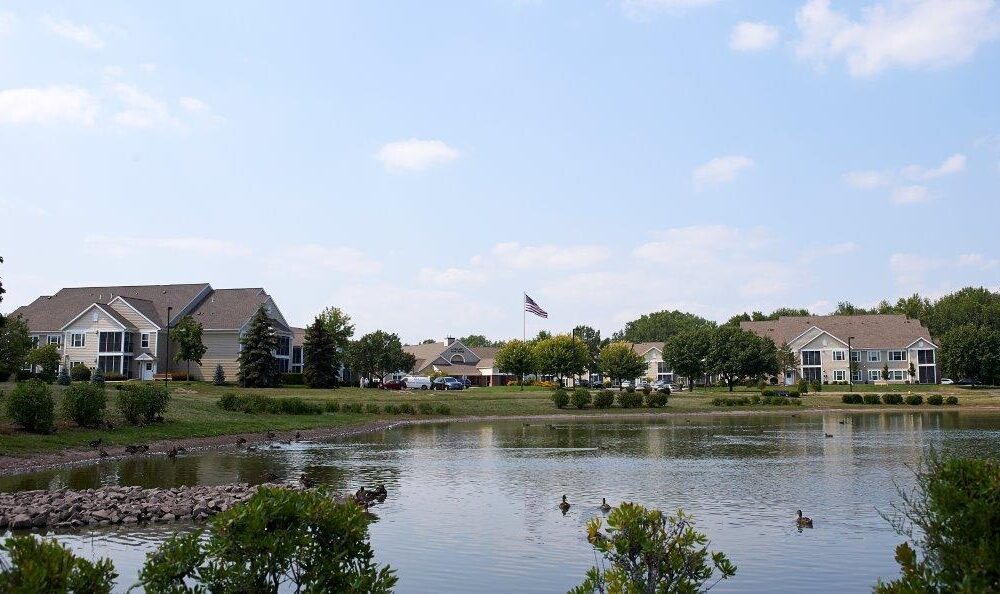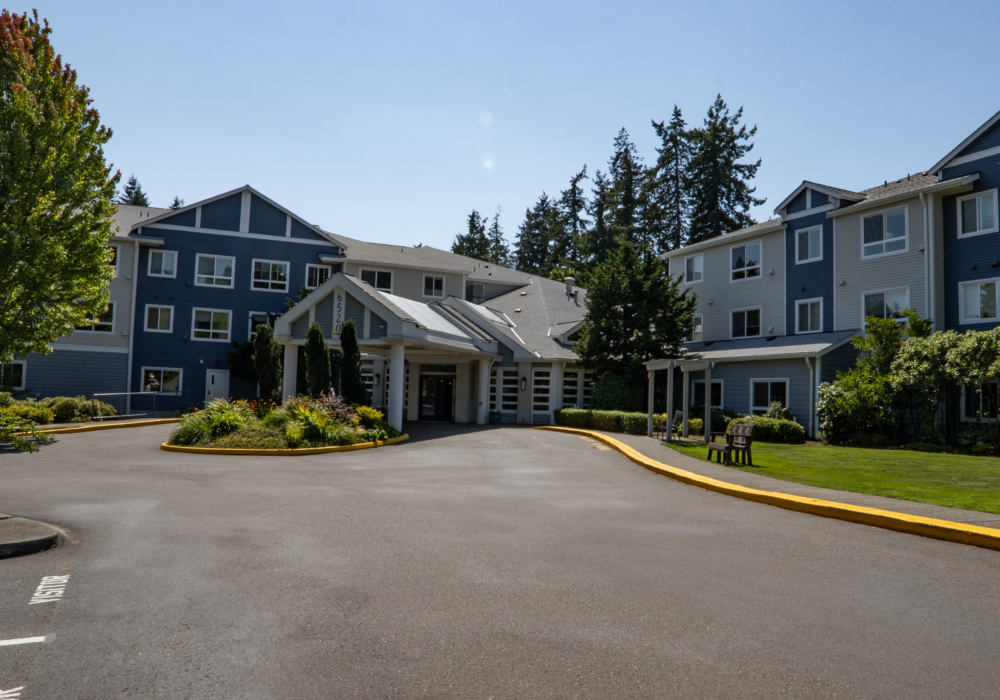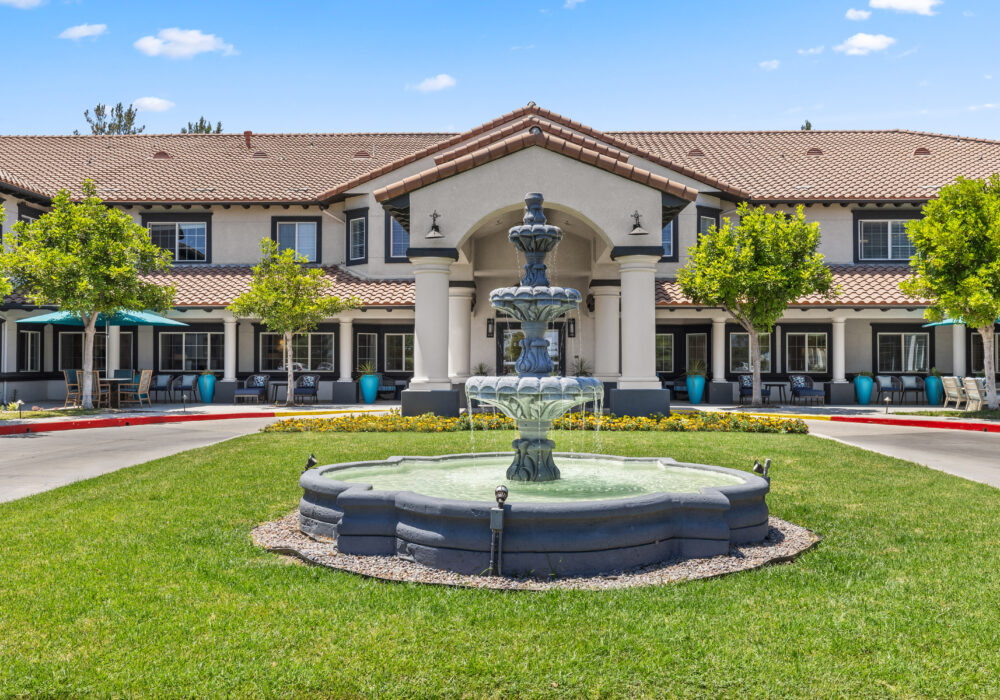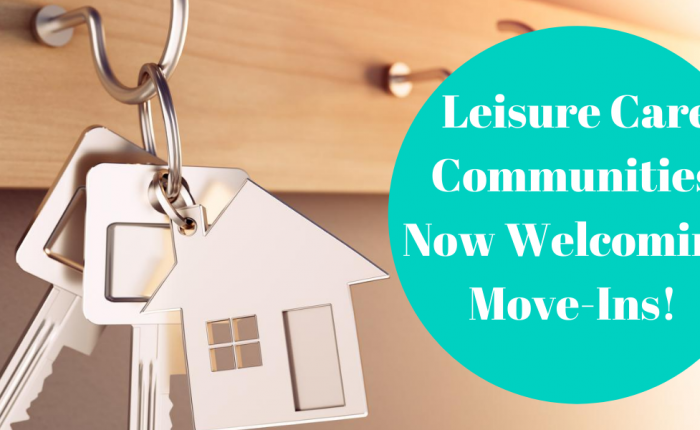
When it comes to finding senior care, today’s options are limitless. From independent living to skilled nursing care, today’s senior living industry offers a plethora of lifestyles. We are here to help you sort through the options and find the best community for you and your loved one.
Two of the most common types of senior living are assisted living communities and nursing homes, also known as skilled nursing facilities. At first glance, these two options may appear to have a lot in common but with differences in payment options, level of care, and amenities offered, the two care options are very different. We invite you to take a second look at how the two differ while thinking through which one suits your needs best.
A New Approach to Senior Living
Today’s assisted living communities and senior nursing facilities are not what they used to be and are a far cry from the stereotypical institutions many still expect. Senior living communities ranging from independent living to assisted living and nursing homes are vibrant places with caring people that work around the clock to help residents thrive. Activities schedules in senior communities often include weekly happy hours, outings and vacations, educational and cultural opportunities, and so much more.
Seniors of all ages and abilities seek a place to call home, surrounded by people their own age, with similar interests and a similar pace of life. Senior communities are a place where people come together to spend their senior years, together, with family and friends that become family, in an environment where they will be well cared for if physical, emotional, or cognitive needs should change over time.
What are Assisted Living Communities?
Assisted living communities are a more recent option for seniors, making their first appearances in the senior living scene in the early 1990s as more seniors wanted gentle assistance with activities of daily living in a comfortable and more home-like setting. Seniors in assisted living often live in private apartment homes that they can decorate themselves, even bringing furniture and decor from home. Independence is encouraged in assisted living and many communities offer kitchen and laundry facilities for residents to prepare their own meals and handle their own laundry needs while also providing meal services and housekeeping.
Many assisted living communities offer an activity schedule to encourage resident interaction with regular happy hours, meals, and outings. Additionally, residents in assisted living receive assistance with activities of daily living, such as dressing, grooming, and hygiene. Assistance is available to help when needed.
Independent Living, Assisted Living, and Memory Care in Rochester, New YorkExperience Leisure Care Assisted Living

Rochester Assisted Living
What are Nursing Homes?
Nursing homes, or skilled nursing facilities, are more fitting for seniors whose needs have advanced past what an assisted living community could offer. Skilled nursing facilities provide around the clock care for residents and expert nursing care. Many skilled nursing facilities offer advanced medical care and resources equivalent to what you would find in a hospital, just in a less institutional and more comfortable environment.
Skilled nursing care can be short-term or long-term. Some residents stay in skilled nursing care while recovering from a surgery or while receiving rehabilitation services after an injury with the goal of restoring the patient to their lifestyle as quickly and as safely as possible. Others residents that are coping with more long-term illness or debilitating disease require long-term stays.
Differences in Payment Accepted
The cost of senior care can be somewhat staggering, with a private room in a skilled nursing facility costing an average of $90,500 annually. Assisted living costs are slightly less, costing an average of $42,000 annually.
Medicare can help defray the cost for seniors to pay for skilled nursing care if the care is medically required for at least 3 days, but no more than 100 days if the facility the person chooses is a Medicare-certified skilled nursing facility. If you are unable to pay for nursing home services and have minimal assets, you may be eligible to pay for skilled nursing care through Medicaid.
When it comes to assisted living, neither Medicare Parts A or B offer coverage for comprehensive long-term care. Some states may offer some coverage through Medicaid programs but eligibility and coverage differ greatly between states. While payment options do vary in each state, residents in assisted living rely primarily on private pay options since most assisted living communities cannot legally accept public pay. Private pay options for assisted living include using veterans benefits, long-term care insurance, retirement savings, home equity loans, or reverse mortgages.
While the cost of senior care may seem daunting, with proper planning and guidance, many families find it is more affordable than it seems at first glance.
Considering Your Options
When choosing between assisted living and a nursing home or skilled nursing facility, here are 8 questions to ask yourself to help guide your decision-making:
- What kind of care does my loved one require?
- What is his or her preference when it comes to residency and level of care?
- Would it be safe and appropriate for my loved one to be independent as much as possible?
- Is my loved one able to make meals and do laundry with some assistance? Or is he or she dependent on others for meal preparation and laundry services?
- What is the goal of care? Are we hopeful for a return home or is it better for him or her to stay with other seniors in a residential environment?
- How will we pay for care? Are we reliant on Medicare or Medicaid?
- What does our medical care team think about each option?
- Does your loved one have a progressive disease that will require more care in the future?
Leisure Care is proud to offer high quality assisted living services in communities that emphasize quality of care and accessibility to a well-trained staff while offering all the amenities of a five-star resort. Contact one of our communities today to learn more about assisted living options near you. We can’t wait to start this next chapter with you and your family.
Find a Leisure Care Community
Better with age, exceptional with us! Come and see how Leisure Care communities are helping seniors rediscover (and sometimes reinvent) themselves.







